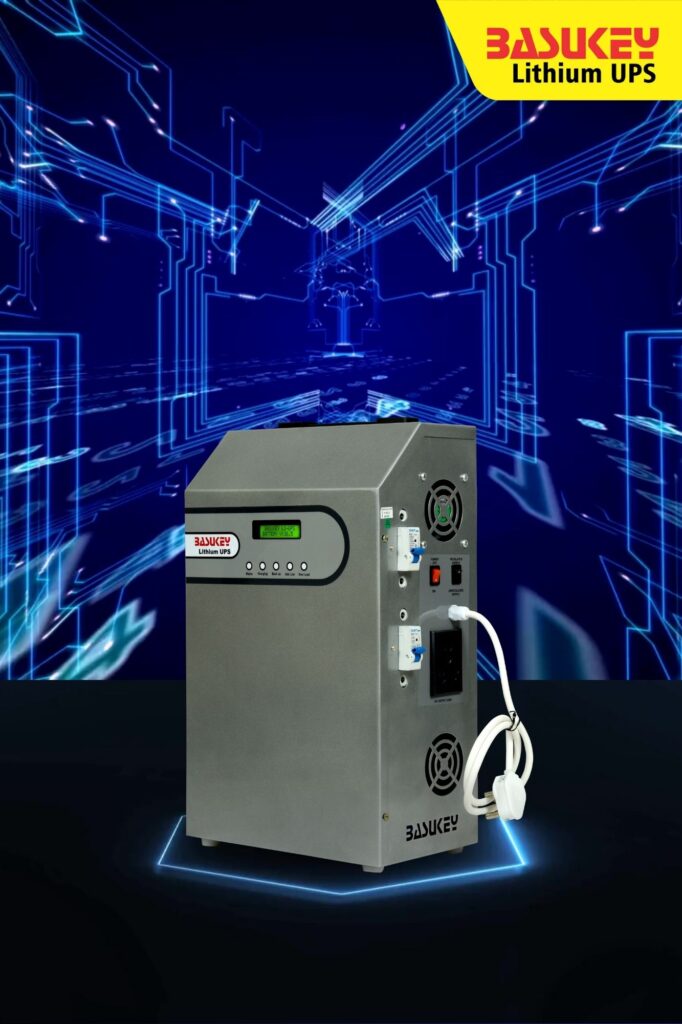Lithium UPS for High-Risk Sectors: Banking, Healthcare, and IT Protection
Lithium UPS for High-Risk Sectors: Banking, Healthcare, and IT Protection. In high-risk industries where downtime is not an option, power reliability is a mission-critical priority. Whether it’s a bank processing millions of transactions, a hospital running life-saving equipment, or a data center securing sensitive information, even a split-second power failure can cause catastrophic financial, operational, and security consequences. Traditional lead-acid UPS systems, once the backbone of backup power, are no longer sufficient to meet the demands of these high-stakes environments. Lithium UPS solutions are now emerging as the gold standard for power resilience, offering:
– Instantaneous power switchover to prevent disruptions.
– AI-driven energy management for predictive reliability.
– Longer battery lifespan and faster recharge times.
– Compact, scalable, and sustainable energy solutions.

Why Traditional UPS Systems Are No Longer Enough
Legacy lead-acid UPS systems struggle to meet the stringent uptime requirements of high-risk sectors due to:
– Slow response times – Delays in switching to backup power can cause data loss and system crashes.
– Shorter battery life – Frequent replacements increase maintenance costs and risk unexpected failures.
– Large footprint – Bulky designs take up valuable space in high-density environments.
– High energy losses – Inefficient power storage and heat output lead to increased operational costs.
How Lithium UPS is Transforming High-Risk Sectors
1. Banking & Financial Services: Securing Transactions & Data Integrity
A. The financial industry relies on always-on power to support:
– Online banking & ATMs – Transactions require uninterrupted connectivity.
– Stock exchanges & trading platforms – Milliseconds of downtime can cause massive financial losses.
– Cybersecurity & fraud prevention – Power failures can compromise sensitive financial data.
B. How Lithium UPS Helps:
– Instant failover prevents transaction disruptions.
– Stable voltage regulation protects sensitive banking servers.
– Remote monitoring ensures early fault detection and risk mitigation.
– Compact form factor allows seamless deployment in data centers and banking infrastructure.
2. Healthcare & Emergency Services: Powering Life-Saving Operations
A.In hospitals and emergency services, power failures are a matter of life and death. Critical systems that require uninterrupted power include:
– Life-support machines (ventilators, dialysis, ICU systems)
– Operating room and emergency equipment
– Medical imaging & laboratory diagnostics
– Electronic health records (EHR) & hospital management systems
B. How Lithium UPS Helps:
– Zero-downtime power switching, ensuring uninterrupted operation of critical medical devices.
– Stable power flow, protecting sensitive hospital infrastructure from voltage surges.
– Fast recharge cycles, ensuring continuous power availability for extended outages.
– Silent operation, reducing noise interference in patient care environments.
3. IT & Data Centers: Preventing Data Loss & Service Disruptions
A. Data centers are the backbone of today’s digital economy, supporting:
– Cloud computing & enterprise IT networks
– Telecommunications & high-speed internet services
– Cybersecurity & encrypted data protection
B. Downtime in IT infrastructure can lead to:
– Service outages, disrupting business operations
– Massive data corruption & financial penalties for SLA violations
– Security vulnerabilities, increasing risks of cyberattacks
C. How Lithium UPS Helps:
– Ultra-fast power transition, preventing server crashes.
– AI-powered load balancing, optimizing energy usage across multiple racks.
– Heat-resistant technology, reducing cooling costs in high-density server environments.
– Seamless integration with renewable energy, supporting sustainability initiatives.
Key Advantages of Lithium UPS for High-Risk Sectors
1. Instant Response Time
Milliseconds matter in banking, healthcare, and IT—Lithium UPS delivers near-zero transition times.
2. AI-Optimized Energy Management
Smart monitoring and predictive diagnostics prevent unexpected failures.
3. Compact, Space-Saving Design
70% lighter & smaller than lead-acid UPS, allowing efficient deployment in tight spaces.
4. Extended Battery Life & Faster Recharge
3-5x longer lifespan reduces maintenance costs and downtime.
5. Seamless Renewable Energy Integration
Works with solar & wind energy, reducing grid dependency and operational costs.
Why High-Risk Sectors Are Rapidly Adopting Lithium UPS
With the growing demand for uninterrupted operations, cyber resilience, and sustainable energy solutions, Lithium UPS is now the preferred choice for industries that cannot afford downtime.
I. Ensures 24/7 business continuity with instant power switching.
II. Lowers total cost of ownership (TCO) with longer battery lifespan.
III. Enhances energy efficiency and integrates with smart grid technology.
IV. Supports high-density IT, healthcare, and banking environments with scalable power solutions.
